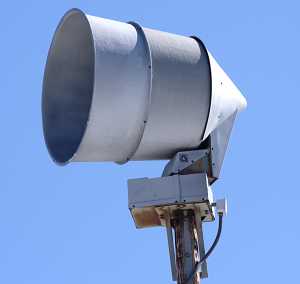Author Interviews, Environmental Risks, Heart Disease, JACC / 06.02.2018
Chronic NOISE Exposure Linked To Heart Disease
MedicalResearch.com Interview with:
 Professor Dr. med. Thomas Muenzel
Universitätsmedizin Mainz
Zentrum für Kardiologie, Kardiologie I
MedicalResearch.com: What is the background for this study? What are the main findings?
Response: The background for this review is that people more and more acknowledge that noise is not just annoying the people as reported for many years, evidence is growing that chronic noise can cause cardiovascular disease including metabolic disease such as diabetes type II and mental disease such as depression and anxiety disorders and noise impairs as well the cognitive development of children.
More recent studies also provided some insight into the mechanisms underlying noise-induced vascular damage. Noise interrupts communication or sleep and thus is causing annoyance. If this occurs chronically the people develop stress characterized by increased stress hormone levels. If this persists for a long time people develop cardiovascular risk factors on tis own such as diabetes, hypercholesterolemia, one measures an increase of the blood to coagulate and the blood pressure will increase. To this end people will develop cardiovascular disease including coronary artery disease, arterial hypertension, stroke, heart failure an arrhythmia such as atrial fibrillation.
So, there is no doubt that noise makes us sick ! (more…)
Professor Dr. med. Thomas Muenzel
Universitätsmedizin Mainz
Zentrum für Kardiologie, Kardiologie I
MedicalResearch.com: What is the background for this study? What are the main findings?
Response: The background for this review is that people more and more acknowledge that noise is not just annoying the people as reported for many years, evidence is growing that chronic noise can cause cardiovascular disease including metabolic disease such as diabetes type II and mental disease such as depression and anxiety disorders and noise impairs as well the cognitive development of children.
More recent studies also provided some insight into the mechanisms underlying noise-induced vascular damage. Noise interrupts communication or sleep and thus is causing annoyance. If this occurs chronically the people develop stress characterized by increased stress hormone levels. If this persists for a long time people develop cardiovascular risk factors on tis own such as diabetes, hypercholesterolemia, one measures an increase of the blood to coagulate and the blood pressure will increase. To this end people will develop cardiovascular disease including coronary artery disease, arterial hypertension, stroke, heart failure an arrhythmia such as atrial fibrillation.
So, there is no doubt that noise makes us sick ! (more…)
 Professor Dr. med. Thomas Muenzel
Universitätsmedizin Mainz
Zentrum für Kardiologie, Kardiologie I
MedicalResearch.com: What is the background for this study? What are the main findings?
Response: The background for this review is that people more and more acknowledge that noise is not just annoying the people as reported for many years, evidence is growing that chronic noise can cause cardiovascular disease including metabolic disease such as diabetes type II and mental disease such as depression and anxiety disorders and noise impairs as well the cognitive development of children.
More recent studies also provided some insight into the mechanisms underlying noise-induced vascular damage. Noise interrupts communication or sleep and thus is causing annoyance. If this occurs chronically the people develop stress characterized by increased stress hormone levels. If this persists for a long time people develop cardiovascular risk factors on tis own such as diabetes, hypercholesterolemia, one measures an increase of the blood to coagulate and the blood pressure will increase. To this end people will develop cardiovascular disease including coronary artery disease, arterial hypertension, stroke, heart failure an arrhythmia such as atrial fibrillation.
So, there is no doubt that noise makes us sick ! (more…)
Professor Dr. med. Thomas Muenzel
Universitätsmedizin Mainz
Zentrum für Kardiologie, Kardiologie I
MedicalResearch.com: What is the background for this study? What are the main findings?
Response: The background for this review is that people more and more acknowledge that noise is not just annoying the people as reported for many years, evidence is growing that chronic noise can cause cardiovascular disease including metabolic disease such as diabetes type II and mental disease such as depression and anxiety disorders and noise impairs as well the cognitive development of children.
More recent studies also provided some insight into the mechanisms underlying noise-induced vascular damage. Noise interrupts communication or sleep and thus is causing annoyance. If this occurs chronically the people develop stress characterized by increased stress hormone levels. If this persists for a long time people develop cardiovascular risk factors on tis own such as diabetes, hypercholesterolemia, one measures an increase of the blood to coagulate and the blood pressure will increase. To this end people will develop cardiovascular disease including coronary artery disease, arterial hypertension, stroke, heart failure an arrhythmia such as atrial fibrillation.
So, there is no doubt that noise makes us sick ! (more…)
